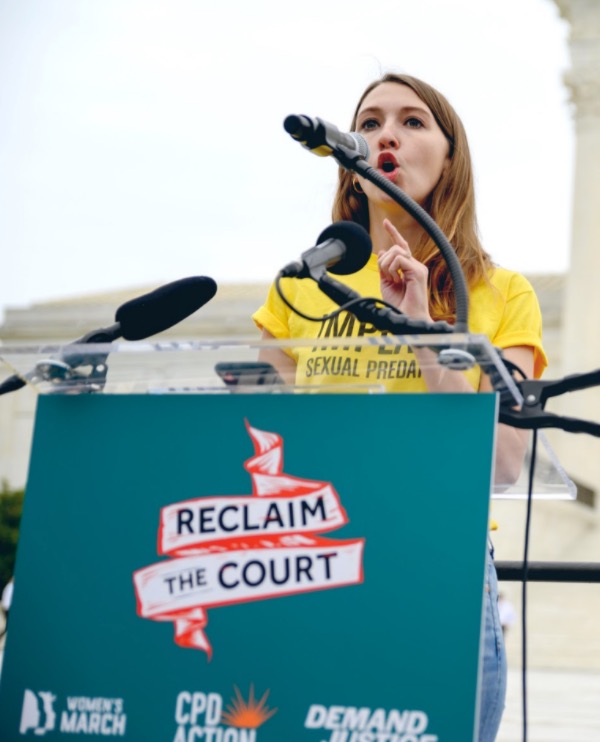By: Sarah Coniglio
3L at Fordham University School of Law
This summer I interned at the Global Justice Center, a nonprofit organization dedicated to international gender justice advocacy. During my internship, I was asked to research the lack of abortion services in areas experiencing conflict. In doing so, I realized that while the lack of abortion services in humanitarian settings is an issue that predates COVID-19, the pandemic has created a higher demand for safe abortion care.
Recent data indicates that the novel coronavirus outbreak has led to an increase in gender-based violence and a decrease in the availability of sexual health and reproductive services. According to the United Nations Populations Fund, 47 million women may not have access to modern contraceptives and 7 million unintended pregnancies are expected to occur if lockdowns carry on for 6 months. Now more than ever, there is a pressing need for increased access to safe abortion, particularly in developing countries.
There are approximately 56 million induced abortions each year, roughly half of which (25 million) are unsafe. Abortions are considered unsafe when “when a pregnancy is terminated either by persons lacking the necessary skills or in an environment that does not conform to minimal medical standards, or both.” According to the World Health Organization, between 4.7% and 13.2% of maternal deaths are a result of unsafe abortions, making unsafe abortions one of the leading causes of maternal deaths worldwide.
In addition to contributing to high rates of maternal mortality, a lack of safe abortion care carries a high financial cost. Approximately 5 million women are hospitalized due to abortion complications annually, which costs upwards of $460 million. In Africa, “to provide care for the illness and disability associated with unsafe abortion, a government spends, on average, at least $114 per case,” even though government spending on healthcare totals $48 per capita per annum in the region.
There are legal, operational, and social barriers to safe abortion access. Abortion is criminalized in most countries. In addition, US foreign aid restrictions materially decrease access to safe abortion in humanitarian settings. The United States, the single largest foreign aid donor globally, is barred from providing foreign aid to provide abortions by the Helms Amendment. Further, the Trump Administration’s re-institution of the global gag rule prohibits the United States from providing foreign aid to organizations that provide abortions, even if the costs associated with abortion care are paid for by another source. The majority of unsafe abortions occur in developing countries, the same countries for whom the United States cannot provide assistance to increase safe abortion access. Both the Helms Amendment and the global gag rule should be repealed in order to decrease high rates of maternal mortality associated with unsafe abortions.
Restricting access to abortion does not decrease abortion, but rather it makes them more unsafe; “unsafe abortion and related mortality are both highest in countries with narrow grounds for abortion.” Thus, it can be deduced that women turn to unsafe abortion methods when safe abortion methods are illegal and/or inaccessible. Rates of maternal mortality (generally) are the highest in conflict and post-conflict countries, where rates of sexual violence tend to also be high. There is a dearth of data on safe abortion access in conflict areas specifically; however, high rates of maternal mortality in these countries indicate that there is inadequate access to safe abortions.
With sexual violence and unintended pregnancies on the rise, increasing safe abortion access is—quite literally, a matter of life or death.
For further information, please see:
UNFPA – Coronavirus Disease (COVID-19) Pandemic UNFPA Global Response Plan – Jun 2020
 People’s Parity Project (“PPP”) and the first Executive Director. In law school, she worked for a number of legal organizations committed to advancing justice for the most marginalized, including Gender Justice, Legal Voice, the Mental Health Legal Advisors Committee, the Hennepin County Public Defender’s Office, and the Fair Labor Division of the Massachusetts Attorney General’s Office; she also served as Editor-in-Chief of the
People’s Parity Project (“PPP”) and the first Executive Director. In law school, she worked for a number of legal organizations committed to advancing justice for the most marginalized, including Gender Justice, Legal Voice, the Mental Health Legal Advisors Committee, the Hennepin County Public Defender’s Office, and the Fair Labor Division of the Massachusetts Attorney General’s Office; she also served as Editor-in-Chief of the